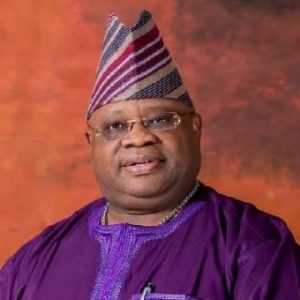Nigeria’s voice rang loud and clear at the First Ladies of Africa Impact and Resilience (FLAIR) 2025 Summit, as the wife of Kwara State governor, Prof. Olufolake AbdulRazaq, who is also the chairperson of Nigerian Governors’ Wives Forum, led a delegation of Nigerian governors’ wives to a groundbreaking gathering held at the House of Lords and House of Commons, UK Parliament.
According to a statement by Dr. Yvonne Thompson, founder of Wintrade Global Women in Business Network Ltd (organisers of the event), the summit brought together African First Ladies, policymakers, investors and leaders in business and civil society to explore innovative strategies for strengthening women’s leadership, resilience and socio-political impact across the continent.
“This is our time,” declared Mrs. AbdulRazaq during her keynote address at the House of Lords. “Nigerian women are no longer asking for space—we are creating it. We have proven our leadership capacity. Now, we are calling for institutional framework to support inclusion, especially in governance.”

During the summit, the Nigerian delegation advocated bold constitutional reforms to ensure greater political representation for women, including the creation of additional Senate and House of Representatives seats reserved for women. This move, if adopted, will mark a historic shift in Nigeria’s democratic structure—ensuring that no senatorial district lacks female representation.
The Nigerian delegation includes Tamunominini Makinde (Oyo); Dr. Falmata Babagana Umara Zulum (Borno); Hajiya Hafsat Buni Kolere (Yobe); Hajiya Lami Ahmadu Fintiri (Adamawa) and Hajia Zulaihat Dikko Radda (Katsina).
They were joined by Her Majesty, Olori Atuwatse III of Warri, whose passionate advocacy against gender bias and cultural discrimination struck a powerful chord with global delegates. Her moving story of overcoming gender-based expectations served as a rallying cry for African women to embrace their leadership potential.
Throughout the three-day event, Nigerian leaders participated in high-level roundtables on: Environmental, Social and Governance (ESG); Diversity, Equity and Inclusion (DEI); Sustainable Development Goals; and Gender-based Violence and Healthcare Policy.
The summit was further enriched by the contributions of Nigerian-born UK Chartered Accountant and Legal Executive, Paschal Opara, a consultant to Wintrade Global and Principal of Icon Accountants.
In a heartfelt address at the House of Lords, Opara reflected on his life experience and declared his support for women-led leadership.
“I was raised by a woman who single-handedly educated six children. Today, I am a father to five daughters and I know the power of women’s leadership. It’s time for men to step aside and let women lead.”
At the Gala Awards Dinner, Nigeria was once again in the spotlight as Ambassador AbdulRazaq and her team received a prestigious award for their work fighting gender-based violence, in alignment with the Renewed Hope Agenda of Nigeria’s First Lady, Senator Oluremi Tinubu. She was honoured for her exceptional contributions to women’s leadership across Africa.
Delegates from Kenya, Zimbabwe and Sierra Leone added depth to the summit’s pan-African spirit. A video message from Dr. Fatima Bio, First Lady of Sierra Leone and President of the African Union First Ladies, called on African women to stand united against cultural norms that diminish their worth.
Kenya’s delegates drew attention to critical issues in education and marriage law, while Zimbabwe’s participation faced political protests—highlighting the complex realities African women navigate daily.
As the summit concluded, delegates renewed their commitment to cross-border collaboration, institutional reform and the empowerment of women across all levels of society. Zimbabwe offered to host the next edition of the FLAIR Summit, a gesture of unity and resolve.
The summit is an annual gathering designed to celebrate and advance the work of African women in leadership, foster high-level partnerships, and develop policy-driven solutions to socio-economic and gender challenges across the continent.
Stay ahead with the latest updates!
Join The Podium Media on WhatsApp for real-time news alerts, breaking stories, and exclusive content delivered straight to your phone. Don’t miss a headline — subscribe now!
Chat with Us on WhatsApp





